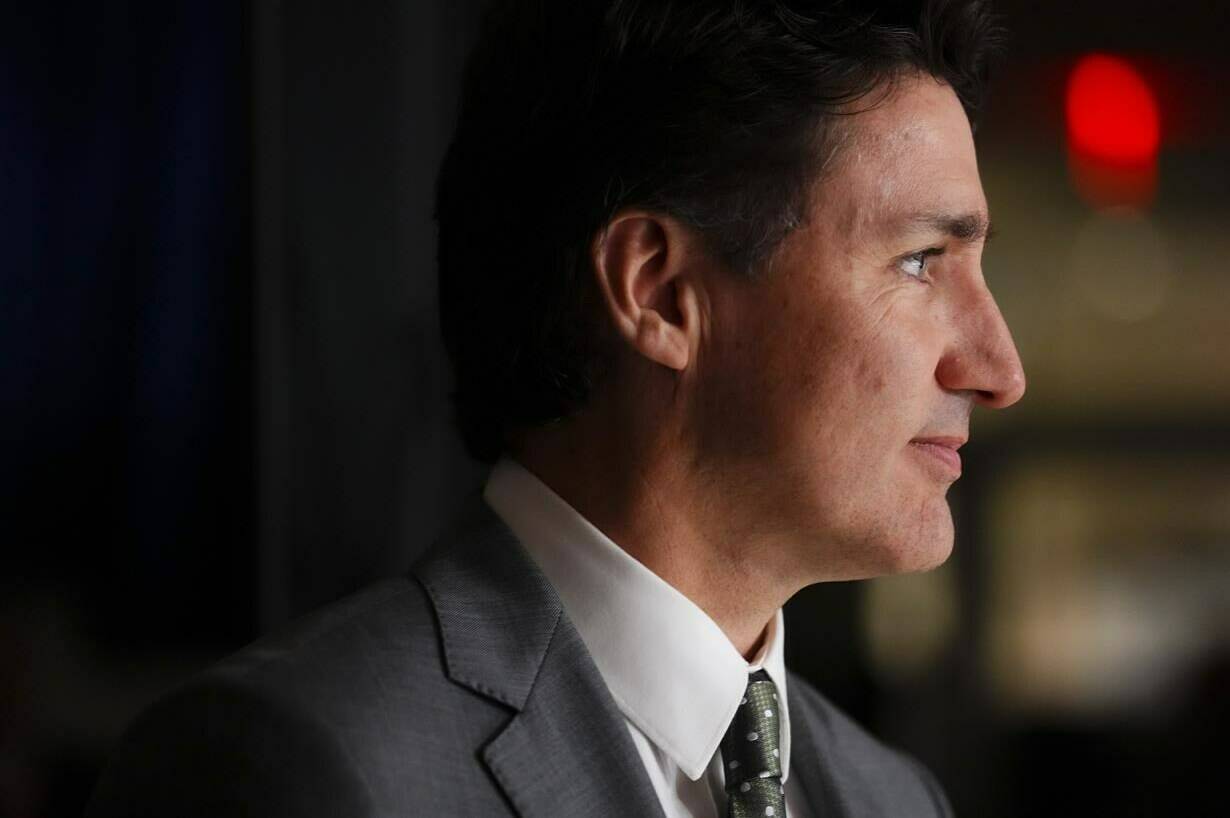Prime Minister Justin Trudeau will take his Canadian sales pitch to an influential U.S. audience this morning.
Trudeau is at the Council on Foreign Relations, a respected New York think tank, to promote Canada as a wise investment and trusted trading partner.
The idea is to capitalize on the momentum that was generated by last month’s visit to Ottawa by U.S. President Joe Biden.
The centrepiece of that visit was a new Canada-U.S. strategy for the extraction, development and processing of critical minerals.
Experts say would-be investors and developers now want to hear how Canada plans to streamline the regulatory process in order to capitalize on the country’s underground riches.
Kirsten Hillman, Canada’s envoy to the U.S., acknowledges the appetite for clarity and says it’s a high priority — although the details likely won’t come today.
Contrary to conventional wisdom, Canada’s permitting processes are actually more efficient than those in the U.S., although she agrees they need improvement.
“I’m not saying it’s good enough. And I’m not saying we don’t want to continue to streamline and improve,” Hillman said Thursday.
“But we already have a natural advantage there, and we’ll continue to improve it.”
Trudeau spent the bulk of the day Thursday focused on promoting efforts to advance sustainable development outside North America, in particular the Global South.
And he got a rough ride at a global summit of progressive thinkers when former CTV National News anchor Lisa LaFlamme pressed him on recent cuts to humanitarian aid spending.
Prior to 2019, the Liberal government in Ottawa committed to making steady annual increases in aid, “and we absolutely have,” Trudeau responded.
The COVID-19 pandemic in 2020, Russia’s invasion of Ukraine last year and other crises around the world, including in Afghanistan, resulted in outsized one-time spikes in spending, he said.
And while there’s likely to be more humanitarian disasters before the end of the fiscal year that will demand Canada make additional commitments, “the baseline continues to go (up),” Trudeau said.
“We spiked it massively because of the pandemic, because of various crises that we had to respond to.”
The appearance was meant to showcase a new five-year, $195-million investment — plus $43 million every subsequent year — in women’s rights advocacy around the world.
Trudeau said the program, Women’s Voice and Leadership, has helped more than 1,500 organizations since it was launched in 2017, far exceeding the original target of 400 groups, who receive the assistance without strings.
“We know that these kinds of initiatives — defending women’s rights from that grassroots community level, led by women, impacting other women — is one of the most powerful ways of effecting change.”
Abortion rights have been under legal siege in recent months in the U.S., Trudeau acknowledged as he seized on the opportunity to depict his government as pro-choice — and Conservative rivals as the opposite.
The U.S. courts have played host to seismic shifts in access to abortion over the last year, most notably the Supreme Court’s decision last June to overturn Roe v. Wade, the landmark 1973 decision that established federal abortion rights.
Advocates had feared that a legal stalemate over access to the so-called abortion pill, mifepristone, would end much the same way, before the high court opted late last week to maintain the status quo — for the time being.
The U.S. Department of Justice is fighting a Texas court decision that, if allowed to stand, would effectively rescind the Food and Drug Administration’s 23-year-old approval of the drug.
“Oh my God, when do we get to stop having to re-litigate this every, every time,” Trudeau said as he characterized his reaction to the latest ruling.
“Women are still having to stand up for basic rights that should have been and have been recognized long ago.”
He noted how during Biden’s speech to Parliament last month, the president “had to admonish” Conservative MPs who failed to stand up and applaud the importance of women’s rights.
“There’s no place where we’re not seeing attacks on rights that one would have hoped we could be taking for granted now.”
The perils facing abortion rights in the U.S. demonstrate that even the most basic rights must be defended with “constant vigilance,” said Hillman, the first woman to occupy her diplomatic post.
“Human rights, women’s rights, security of individuals and all kinds of minority rights around the world — these are things that we can’t take for granted,” Hillman said earlier Thursday outside the United Nations.
“We see in the United States that once rights are attained, you can’t take them for granted. You have to continue to make sure that you’re building on them and reinforcing them.”
READ MORE: Trudeau, Biden have bilateral meeting as North American summit begins in earnest
READ MORE: Firm handshakes, hard lines: Trudeau, Biden to talk protectionism, Haiti, migration

